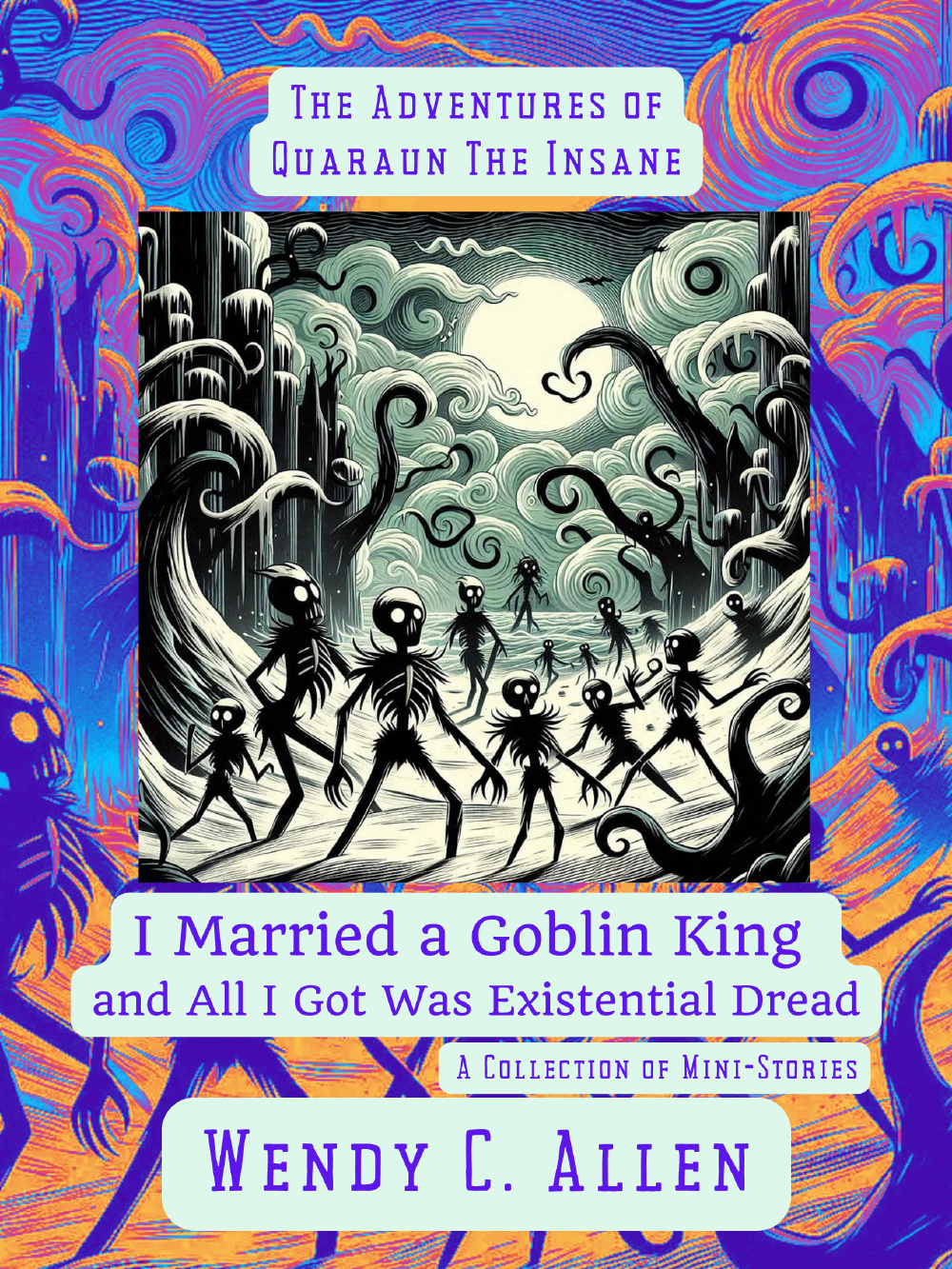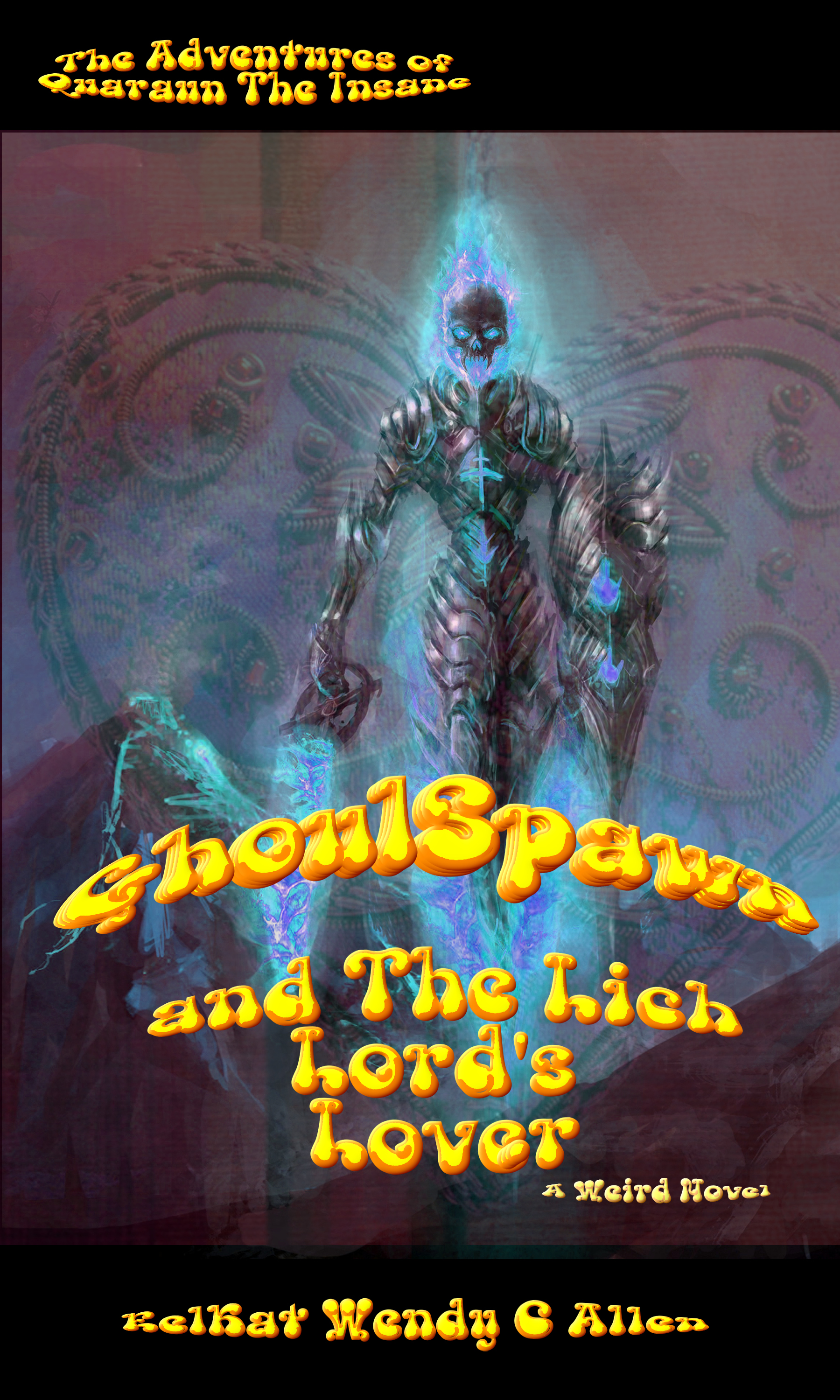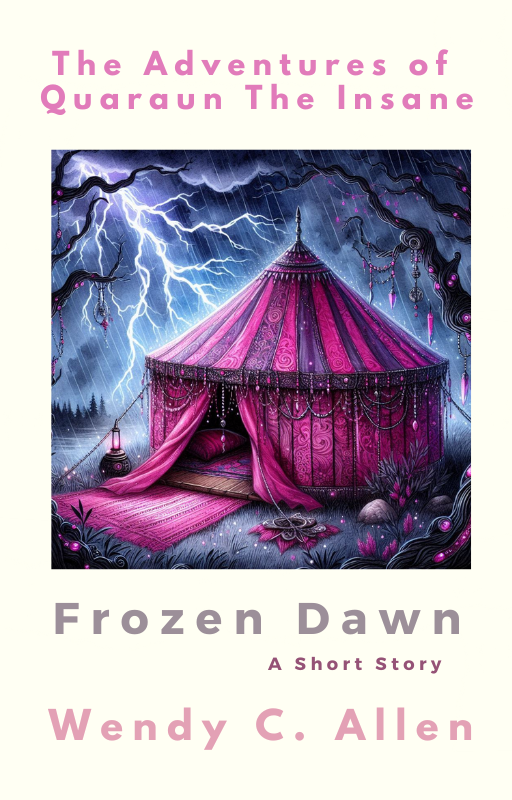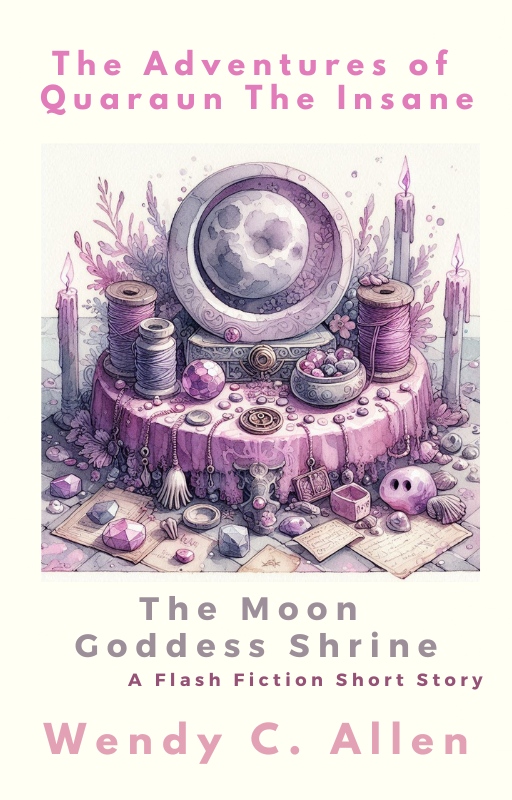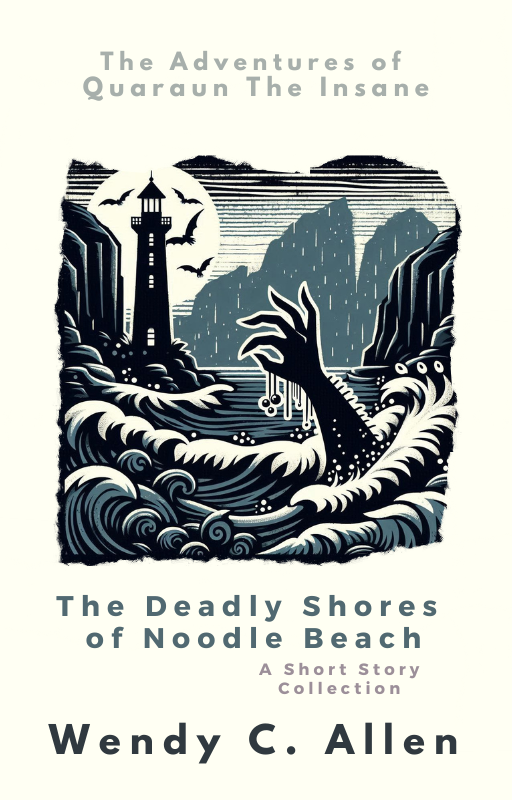Counting Down to the 2028 50th Anniversary of my first published book (September 23, 1978)
|
I am an author. I write Yaoi. This is my website. Yaoi means my main characters are gay lovers. If that bothers you, you're on the wrong website. Sorry.   Transman Quaraun (The Pink Necromancer) and his husband King Gwallmaic (aka BoomFuzzy the Unicorn) King of The UnSeelie Court. Main characters of The Adventures of The Pink Necromancer series. Transman Quaraun (The Pink Necromancer) and his husband King Gwallmaic (aka BoomFuzzy the Unicorn) King of The UnSeelie Court. Main characters of The Adventures of The Pink Necromancer series.
|
This website is a safe zone for LGBTQAI+, pagans, polys, trans, neurodivergent, disabled, mobile aid user, minority, cosplayers, otherkin, furries, & BIOPIC communities.
If you are a hater, you can go fuck yourself.
Happy 2026!
It is our 30th anniversary here at Space Dock 13!
On the web since 1996!
You have encountered an extremely old website that continues to exist in old web ways, the same way it has done for now three decades.
In spite of being now 30 years old this year, started in 1996, it is still heavily active and old pages updated daily, new pages added daily, still now in 2026. All hand written, all hand coded (no AI), all by me, same as it ever was.
We Still Exist: The Old Web Did Not Go Away, You Just Forgot How To Find Us
|
This site was NOT designed for mobile devices (as they had not been invented yet when I created it) thus this site looks best on a computer, at 1280x768 or above. |
This is a very old website created in 1996, so, yes, javascript is needed for the site to work as it should. If things don't function, you may need to update javascript drivers on your device |
This site tries to be mobile friendly but it's been online since 1996, so old pages may not load right on mobile devices, and as this site has had pages added near daily for 30 years there are now over 20k pages here. |
Having started out in life as a GeoCities site, this site contains glitter, bright colours, blinkies, moving gifs, and other things the old web was known for. |
If the book does not bring in
enough revenue to cover the advance,
do I have to return the advance?
Home
/
Publishing Methods
/
Return the Advance?
|
"Let's say I have a book published by a well-known press and received an advance against royalties - if the book does not bring in enough revenue to cover the advance - do I have to return the advance - ever - down the line. (e.g. $20,000 advance, the book "nets" $10,000 - am I going to owe them $10,000 back??)" |
Will you ever have to return the advance on your royalties? Sometimes yes, sometimes no. There is no standard one size fits all answer to this question, because every publisher has their own rules and by-lines governing what they do and how they do it.
For most publishers, no, you would not have to return the advance. But than again, most publishers aren't going to give you an advance to begin with. Authors getting advances as a standard practice is one of those great big urban myths drummed up by Hollywood movies. In real life it rarely happens, unless you've already sold 3 or more best sellers. First time authors are rarely going to see an advance, and only authors with a reputation for consistently producing bestsellers get large advances.
When you see news reports talking about giant advances being given to new authors - remember that the REASON these reports became news, was because it is such a rare event that news reporters jump on the story. For every $10,000 advance there are 3million authors who did not receive a penny of advance. Never forget that. It's important to remember, because if you get hung up on making money, you'll never succeed as an author.
I remember reading an author interview once. It was with Dr. Tim LaHaye the author of Left Behind. The interviewer asked him what it felt like to become an overnight success with his first book. The author asked "What do you mean, my first book? I don't think anyone even knows my first book." The interviewer became puzzled and asked "Isn't Left Behind your first book?" The author said, "No, I have 26 other books already. This one only became famous because it was picked up for a movie." He was a minister and had written tons of books that were only being circulated through small Christian book distributors. It was a fluke that his Left Behind book got picked up by a larger book store and ended up in the hands of a movie producer. Suddenly he was getting requests from publishers to turn the book into a series, with those requests were offers of advances against royalties. Publishers began bidding against each other. He had choice which offer was best for him. He was only offered an advance because publishers wanted to jump in and get the rights to the series before the movie hit the theaters.
That's the way advances work in the real world. Don't believe the mumbu-jumbo you see on TVShows like Murder She Wrote. You as a first time author are not likely to get any advance at all, so don't plan on it, or you'll be crushed when the reality of this fact hits you.
But let's say you are one of the flukes and yes, you do get an advance. Okay. Great! Good for you! You are doing something right, because you have got the support of a publisher who thinks you are the next J.K.Rowlings.
Well, before we even look at whether or not you'll need to return the advance, let's take a look at the advance. In your example you toss out a number of $20,000.
Let's take a gander at the #s you quoted: S20,000 advance on royalties? Uhm, yeah, no. You will not be seeing that from any publisher, not even the biggest ones, not unless you are Steven King, and even than maybe not. (Remember that most of Stephen King's money comes from movie royalties not book royalties!)
Standard advance for the average first time author with the average well known large-press is $1,000 to $5,000. Most publishers figure the advance out low, estimating it so that you'll end up receiving about $1,000 to $2,000 extra via royalties, approximately 6 months to a year after the book is published.
INSIDER SECRET: This is a marketing scheme used by publishers. The way they figure it, by the time you start receiving royalties, you should have another manuscript ready to send them, and IF your first book sold enough to reach the point of earning royalties (many don't) that means you are a good risk, for them to publish another book by you.
This figuring advances to come to a $1,000 less than your total sales earnings, ensures they'll have an excuse to contact you again. When they send out that royalty check, they are hoping you'll be finishing up your next manuscript and be looking to send it out, and you'll send it to them instead of going elsewhere.
It is for this very reason, that you will rarely ever have to worry about needing to return the advance to the publisher, because publishers rarely give out advances that are as high as the expected sales.
Now that you understand the logic behind how much a publisher decides to offer you as an advance, let's now give you a swift kick in the pants to knock you off your fantasy cloud of author income delusions.
REALITY CHECK: The average large-press traditionally published fiction author makes $2,000 to $7,000 in the lifetime of their book. This is why the average "full time author" writes 4 books a year in order to earn the below poverty level income of $24,000 a year. This is also why the average full-time author also works a "regular" part time job in order to earn enough income to support their family.
Yes, you read that correctly.
The average large-press traditionally published fiction author makes $2,000 to $7,000 in the lifetime of their book. This is why the average "full time author" writes 4 books a year in order to earn the below poverty level income of $24,000 a year. This is also why the average full-time author also works a "regular" part time job in order to earn enough income to support their family.
Has it sunk in yet?
No?
Let's get the dancing bananas to shout it out one more time to make sure you hear it:
|
|
|
|
|
|
The average large-press traditionally published fiction author makes $2,000 to $7,000 in the lifetime of their book. This is why the average "full time author" writes 4 books a year in order to earn the below poverty level income of $24,000 a year. This is also why the average full-time author also works a "regular" part time job in order to earn enough income to support their family.
|
|
|
|
|
|
It all depends on what it says in the contract you signed. This is why you need to read every line of your contract very carefully, than have several of your friends read it, and than have your lawyer read it. All 30 or 40 or so pages of it. You want to have a great big heart to heart with everybody who read it to find out what they think it means, (they will bring up issues you had not thought of) and than have a great big heart to heart with your lawyer to find out what it actually means, and ask all your questions, and ask all the questions your friends brought up. Finally you want your lawyer and the publisher's lawyers to get together and have themselves a great big pow-wow to make sure your lawyer interpreted everything the way their lawyers did. And last of all you want to come right out and ask your editor (with the publishing house) what the publisher's policy on returning advances is. This is the only way you'll know for sure.
Keep in mind you'll have to repeat this for every single contract even if you use the same publisher multiple times.
The End?
No, you have NOT reached the end of this article! What you have reached is the end of what it currently online. The rest is coming, hopefully it'll be on here in a day or three so keep checking back. I will remove this message at the same time I put the rest of it online.
As my long time readers will already
know a server crash took down most of the old free-hosted site on June
4, 2013 (which was online since 1997 and had reached 6,000+ pages).
Thankfully everything was saved on a separate hard-drive and the site is
being rebuilt with a new host and for the first time on it's own
domain. YAY!
I am currently moving all 6,000 questions&answer articles to this site one page at a time, at a rate of about 4 to 7 new pages being added each day, so be patient. Not all links are yet clickable. This process started on September 2, 2013 and will be ongoing at least through to January 2014. (And it may be well into 2017 before all 6,000 pages will be back online if I continue at this rate of 5 a day.)
or head to:
Big House | Small Press | Self-Publishing | Indie Press | Vanity Press | E-Publishing
This page was written by Wendy Christine Allen of 146 Portland Ave, Old Orchard Beach, Maine.
All Rights Reserved.
While there are around 20k pages on this website, most of them are blocked from search engines, with only around 800 of them available for appearing in Google/Bing/etc search results. The remainder can only be accessed via the various links found throughout this site. This was done deliberately on my part, and I did it because the bulk of the pages on this website are chapters from 138 novels and 423 novellas, so only the first page of each novel and novella indexed by search engines, and the remainder are linked in order, one page at a time, via clicking "next page" at the end of each. So if you are looking for a specific page from a specific novel, Google can't help you.
|
Thank you for stopping by and have a nice day! ꧁✨🌸🔮🦄🔮🌸✨꧂ And if it’s your birthday today: ִֶָ𓂃 ࣪˖ ִֶָ🐇་༘࿐꧁ᴴᵃᵖᵖʸ☆ᵇⁱʳᵗʰᵈᵃʸ꧂🤍🎀🧸🌷🍭 |
 |
Get an email whenever Wendy Christine Allen 🌸💖🦄 aka EelKat 🧿💛🔮👻 publishes on Medium.
I also write on these locations: | Amazon | Blogger | GumRoad | Medium | Notd | OnlyFans | Tumblr | Vocal |
Important:
Fraudulent sites are impersonating Wendy Christine Allen.
- The ONLY official website for Wendy Christine Allen is www.eelkat.com
Fraudulent social media accounts, particularly on Reddit and FaceBook are impersonating Wendy Christine Allen.
- The ONLY official social media accounts for Wendy Christine Allen are listed in the footer here at www.eelkat.com
Find Me on Social Media:
- Amazon: Author Central
- Amazon: Quaraun Series Index
- Blogger
- CafePress
- DeviantArt
- FaceBook (Profile)
- FictionPress
- Gravatar
- GumRoad
- Lemon8
- Medium
- Notd
- OnlyFans
- PayPal
- Reddit 1 (Primary)
- Reddit 2 (Alt; Archived)
- SpoonFlower
- TikTok
- Tumblr
- Twitch
- Twitter (X)
- Vocal
- WordPress
- YouTube
- YouTube Shorts
- Zazzle: My Art
- Zazzle: Quaraun Merch
Any websites and accounts you find online that are NOT on this list are NOT Wendy Christine Allen

